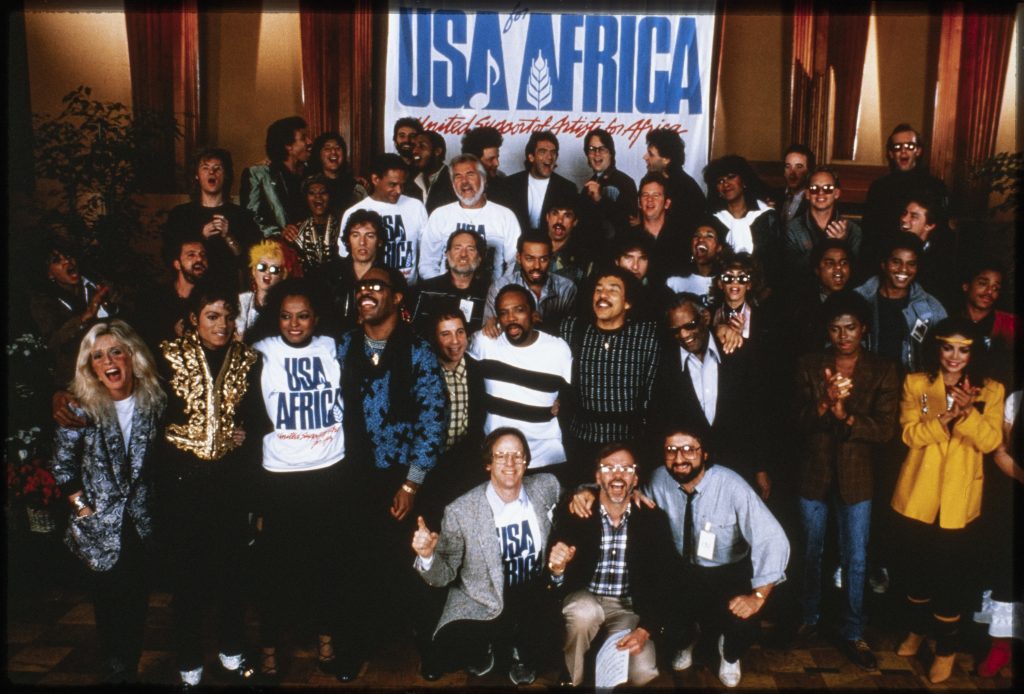Film Festival Tickets On Sale April 13
Festival's program packed with films and ticket deals. Many movies connect to current events.
The Milwaukee Film Festival runs April 24 through May 8 at both the Oriental and Downer theaters and it is voluminous. Media covering the festival has to emphasize a variety of possibilities: 6-pack and 10-pack of tickets on sale through April 13; the public online box office for individual tickets opens April 16, and in-person individual tickets go on sale at Oriental Theater starting April 18. To pick up the detailed program guide, check mkefilm.org/programbooklocations.
Variety is central to the breadth of the festival, to the point that it has divided up offerings into categories, including Art & Artists, Black Lens, Cream City Cinema, Cinema Hooligante (“for the grownups who never grew up and the weirdos who never needed normal”), Cine Sin Fronteras (without borders), Documentary Favorites, GenreQueer, Independents and various short subjects packages for children.
I was able to request a few advance screenings for review purposes. One is at the end of this story. Many of the films make for interesting linkages the festival may not have intended – or maybe it did. Planners do have their ear to the ground.
Current news events under the Trump administration have made several of the films, most released in 2024 and early 2025 but clearly worked on for months or years in advance, convey news connections the makers may not have anticipated.
A surprising number of foreign films were made under or about dictatorships, so the issues of censorship or silencing are historic, but echo new dimensions today.
Then there is Separated (Mexico/US, 2024), by noted documentarian Errol Morris, based on a fascinating book by MSNBC’s Jacob Soboroff about one of the darkest trends in American history – forced family separations. The film interviews whistleblowers and officials, and dates back hundreds of years, exploring the realities and the hardships endured by migrant families seeking a better income in the US.
Our southern border and active removal remain one of Trump’s big selling points, whatever the facts. The film uses both English and Spanish in 93 minutes for its narrative and for the larger theme that cruelty may actually be the purpose of family separation.
The film – not available for my screening — comes nearer the end of the festival – 3:45 p.m. Wednesday, April 30, and 4:30 p.m. Sunday, May 4, at the Downer Theater and again at 3 p.m. Thursday, May 8, at the Oriental Theater.
Similarly, The Kids Are Not Alright (2024) from director Mikaela Shwer, focuses on the thousands of teenagers caught up in cult-like reform programs generating billions in private profits. The documentary – also not available for advance screening – focuses on three families related to programs forced on teens, programs still in the headlines today, some ostensibly playing on a warped view of Christian ethics (in my opinion).
Festival showings are at 12:45 p.m. Saturday, April 26, and also 3 p.m. Monday, May 5, both at the Oriental Theater. (Do not be confused by a similarly named comedy on YouTube.)
Again and again, working through the festival schedule, you will find feature films and documentaries that touch – sometimes heavily – on issues much in the news.
One is a festival spotlight film – The Librarians, focusing on book burning and similar issues that are pitting communities against the people they once cherished – librarians. Award winning documentarian Kim Snyder – in a film also picked up for next fall by PBS – explores the issue and the grassroots fighting back.
The issue of book censorship is doubly timely since Wisconsin AG Josh Kaul has joined other attorneys general in a lawsuit against the Trump administration’s dismantling of federal library services.
This film is scheduled for two showings at the Oriental: 7 p.m. Friday, May 2, and 10:30 a.m. Saturday, May 3.
You can wander through the festival schedule and find many films that may have been made ahead of what are hot topics in the news, but speak volumes about the topics. Has the world changed in terms of unease? The festival is not wearing a political badge on its sleeve, but film-makers are often ahead of the times.
Many of the subjects the festival deals with – anti-trans legislation, families surviving in the wilderness, families surviving under dictatorships, investors surviving taxes, yes, even films that simply remind us of the joys of dangerous hobbies, such as Brazilians flying artistic hot air balloons in Balomania – all honor survival or celebrate life in an age when many feel under threat, not just in business but in their private pursuits.
All those factors led me to a film I did screen, because I’ve been fascinated by the issue for 40 years. The film measures the global impact of celebrity music — not directly, though many of the festival films explore how famous bands were created or functioned. But mainly it is about the horrifying famine that music helped the world to finally see, since the famine was invisible to most outside Africa.
It led to the Live Aid concerts in US and London and the Africa relief gathering in a Los Angeles recording studio for We Are the World, translated into a hit record, a hit video and a later music-laced documentary available on You Tube.
The new film is Stand Together as One (2024), bracketed by the famous music. Its main focus is the still powerful footage that the late Kenyan photojournalist Mohamed Amin and his BBC colleagues took of the 1980s famine in Ethiopia. It killed a million people, usually poor farm families, and it shows a young British nurse forced to choose which children to spoon-feed knowing thousands of others would not get these pitiful morsels and die within a day.
The images remain the most powerful and upsetting footage of crowded death and disease our media has ever recorded, which makes the film and its story important to watch.
Many people are fascinated by the We Are the World celebrity gathering – spotting those still living (Cyndi Lauper, Paul Simon, Stevie Wonder) and those now dead (Michael Jackson, Diana Ross, Ray Charles, Kenny Rogers) but Stand Together as One tells the history of the famine, how a dictator used food as a weapon, how Ethiopia recovered and then fell back into civil war and how the celebrity movement spread throughout Africa.
It also quotes to telling effect the late Harry Belafonte, who inspired the movement. In an interview a few years ago he said that the world will never allow such a huge disaster to happen again – and then he paused pointedly, since he and we know it might.
Hard as some of the footage is to watch, the images and the lessons about the power of goodwill make it a worthwhile documentary from director and narrator Chip Duncan, a noted film-maker and UW-Madison grad long based in Milwaukee. The festival will show the film at 4 p.m. on Friday, April 25, at the Downer Theater and again at 6:15 p.m. Wednesday, May 7, at the Oriental Theater.
Dominique Paul Noth served for decades as film and drama critic, later senior editor for features at the Milwaukee Journal. You’ll find his blog here and here.
Milwaukee Film Festival
-
Check Out These Milwaukee-Made Films At The Film Festival
 Apr 14th, 2024 by Jeramey Jannene
Apr 14th, 2024 by Jeramey Jannene
-
The Unknown Joan Baez
 Apr 11th, 2024 by Dominique Paul Noth
Apr 11th, 2024 by Dominique Paul Noth
-
‘The Taste of Things’ Is a Jewel
 Apr 9th, 2024 by Dominique Paul Noth
Apr 9th, 2024 by Dominique Paul Noth
Movies
-
Republican Legislators Push Tax Credits for Films Made in Wisconsin
 May 21st, 2025 by Baylor Spears
May 21st, 2025 by Baylor Spears
-
Mystery Movie Being Filmed in Milwaukee With Kevin Spacey
 Apr 24th, 2025 by Jeramey Jannene
Apr 24th, 2025 by Jeramey Jannene
-
Two Documentaries Offer Lessons in Fame
 Apr 24th, 2025 by Dominique Paul Noth
Apr 24th, 2025 by Dominique Paul Noth




















